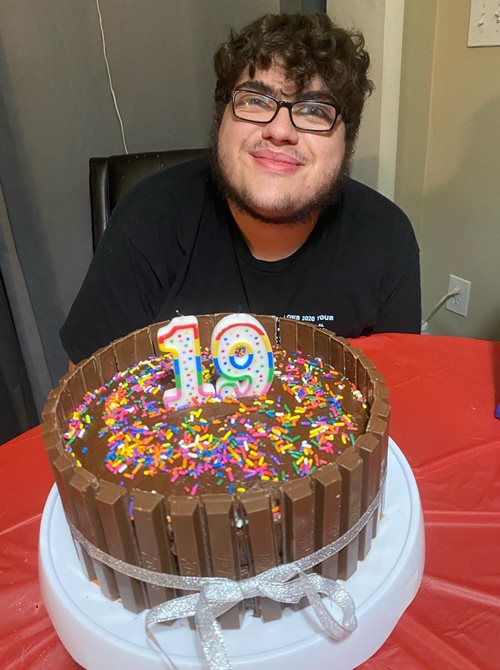Eric Llera, now 19, was only a week old when he underwent his first heart procedure, a balloon dilation of a narrowed heart valve via cardiac catheterization. He was born with critical pulmonary valve stenosis, a defect affecting the heart valve that connects the heart and lungs.
His mom, Sandra, says the journey has been tough.
“Ever since he was a baby, I made it my mission to research the latest treatments available, how valve replacement works and sought second opinions. He had to be carefully followed and surgery was always a possibility,” she says.
By his late teens, Eric was approaching the next step in his heart journey, a valve replacement for his pulmonary valve, because although the dilation worked very well to relief obstruction of the flow, the valve did not close normally resulting in “pulmonary regurgitation”, or back-flow into the right ventricle. Sandra and Eric met with cardiologists in the Heart Institute at Nicklaus Children’s Hospital to explore all their options for this next step in his heart journey.
“A person with critical pulmonary valve stenosis may undergo one or more valve replacements during his or her lifetime,” says Dr. Jason Katz, Eric’s pediatric cardiologist at Nicklaus Children’s. “This is because the valve can become increasingly dysfunctional as the child grows.”
A valve replacement has traditionally been performed through surgical intervention; however, advances in medicine have opened the door to less invasive techniques through cardiac catheterization, a procedure that involves placing patches and valves through a thin tube entered through the femoral vessels.
In 2021, the Harmony Transcatheter Pulmonary Valve from Medtronic Inc. was FDA-approved for pulmonary valve replacement. It is a first-of-its-kind option available to patients in need of certain types of heart valve replacements, and Nicklaus Children’s was one of the first children’s hospitals in the region to explore the use of the Harmony Transcatheter Pulmonary Valve for the pediatric population.

Dr. Lourdes Prieto, pediatric cardiologist and director of the cardiac catheterization laboratory at Nicklaus Children’s, says Eric was an excellent candidate for the procedure.
“The Harmony valve is a self-expanding device that can adapt to different types of patients and anatomies. Specifically, it can be implanted in patients with large pulmonary outflow tracts, which until now there was no transcatheter option for, and surgery was the only way to replace the valve. Eric had this type of anatomy. Fortunately he was able to wait for the Harmony valve to become available and avoid open heart surgery,” she said.
Eric says he is feeling great and his energy level is much higher than before the valve replacement. He only had to take one week off from his exercise routine before returning to his active lifestyle.
“We are so grateful to Nicklaus Children’s for always being a step ahead in terms of new treatment options. I worried about the possibility of open-heart surgery for years, and am grateful that Eric had the opportunity to undergo this less-invasive method for his heart valve replacement,” said Sandra.
